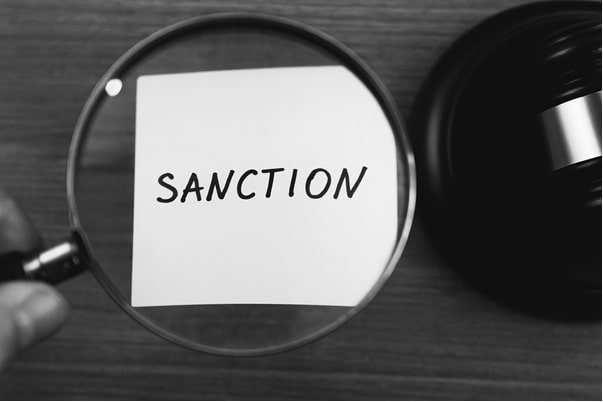Would sanctions circumvention abroad become a criminal offence in Ukraine?
In June 2025, the Ukrainian Parliament passed draft law No. 12406 as a basis. This document introduces criminal liability for violations and circumvention of sanctions, marking a significant step forward in Ukraine’s evolving sanctions policy. The legislation is expected to be finalized and amended shortly.
As of today, over 18,000 individuals are subject to sanctions in Ukraine — the majority of whom are foreign nationals with significant assets located abroad. This raises an essential question: Could the new law impact such individuals and their foreign-based property? For more detailed insights and current updates on Ukraine’s sanctions regime, you can visit ukrainiansanctions.com — a trusted source on this niche legal area.

How Do Sanctioned Persons Avoid Nationalization?
Since 2022, sanctioned persons have made frequent attempts to protect their holdings from nationalization. These methods include transferring stakes in parent companies abroad, restructuring ownership chains, or diluting control in accordance with foreign legislation.
Cases involving companies like Shell and individuals like Mikhail Shelkov illustrate how these tactics are applied in practice. But the key legal question now is whether such foreign transactions will be considered criminal acts under Ukrainian law — specifically as forms of sanctions circumvention.
What Exactly Is Sanctions Circumvention?
The proposed draft law defines “circumvention” broadly, encompassing nearly any action that conceals or protects the assets of a sanctioned person. These include:
- Transfer of assets to a third party
- Concealing asset ownership
- Masking asset origin
- Driving a company into bankruptcy
Any such act involving assets valued at over UAH 151,000 could fall under the new criminal provisions. The scope is wide — so wide, in fact, that it creates potential room for misuse by prosecutors and investigative authorities. Ultimately, whether a specific action constitutes circumvention will be decided by investigators and the courts.
Do Ukrainian Sanctions Apply Abroad?
Yes — and increasingly so. The draft law’s authors claim that Ukrainian sanctions have extraterritorial effect. In their interpretation, even if a transaction with sanctioned assets occurs abroad and under foreign law, it may still be classified as sanctions circumvention under Ukrainian legislation — thereby triggering criminal liability.
The basis for this lies in several legal instruments:
- The Law of Ukraine “On Sanctions” applies asset freezes to all holdings “owned or controlled” by sanctioned persons, regardless of location.
- The Criminal Code of Ukraine asserts jurisdiction over crimes committed abroad by Ukrainian citizens. Foreign nationals may also be prosecuted in Ukraine if their acts are considered serious crimes against the state.
- International cooperation mechanisms, as per anti-money laundering laws, empower Ukrainian authorities to engage foreign counterparts or UN Security Council committees for enforcement.
First Legal Precedent: Supreme Court Ruling
Although full-scale court practice has yet to form, a recent Supreme Court decision sets a crucial precedent. The case involved a sanctioned individual transferring shares of a paper and cardboard company under Austrian law. The resulting registration changes were processed by a Ukrainian notary.
However, Ukraine’s Ministry of Justice invalidated the registration and revoked the notary’s access to the official register. The Supreme Court upheld this decision, citing the extraterritorial effect of sanctions.
According to the ruling:
- Ukrainian sanctions apply globally
- The alienation of foreign shares can be interpreted as circumvention
- Ukraine has a mechanism to pursue such violations internationally
The Court also referenced the Law of Ukraine “On Prevention and Counteraction to Legalisation (Laundering) of the Proceeds of Crime or Terrorist Financing”, which authorizes the Security Service and the Ministry of Foreign Affairs to seek sanctions in foreign jurisdictions.
Who May Be Held Criminally Liable?
Clearly, the primary targets of the draft law are:
- Sanctioned individuals
- Their counterparties and associates
However, the law potentially applies to a much wider circle, including:
- Notaries involved in processing transactions
- Agents and intermediaries facilitating asset transfers
- Nominee owners
- Third parties receiving payments
Such persons could face charges of aiding and abetting sanctions circumvention.
Therefore, due diligence is essential. All parties are strongly advised to verify whether clients or counterparties appear in the Ukrainian State Register of Sanctions, in order to avoid unintentional criminal exposure.
Conclusion: An Unfinished Legal Landscape
While criminalizing sanctions circumvention is a logical step in protecting Ukraine’s national security interests, the current legislative framework remains broad, undefined, and prone to abuse. The draft law does not clearly define all aspects of liability or set practical enforcement rules. Moreover, sanctions policy in Ukraine remains inconsistent, raising concerns about its use as an instrument of administrative pressure rather than a well-regulated mechanism of justice.
In an environment of legal uncertainty and expanding risk exposure, it is essential for businesses and individuals to closely monitor ongoing legislative changes. It is particularly important to understand how sanctions enforcement is being shaped, what actions may be deemed violations, and who falls within the risk zone. Additionally, we recommend reviewing the Sanctions Policy of Ukraine (2014–2021) to gain deeper insight into how the country’s approach has evolved — and to better anticipate future enforcement trends.

Our dedicated team gathers information from all the reliable sources to make the law accessible and understandable for everyone. We provide the latest legal news stories from across the country, delivered straight to you.
